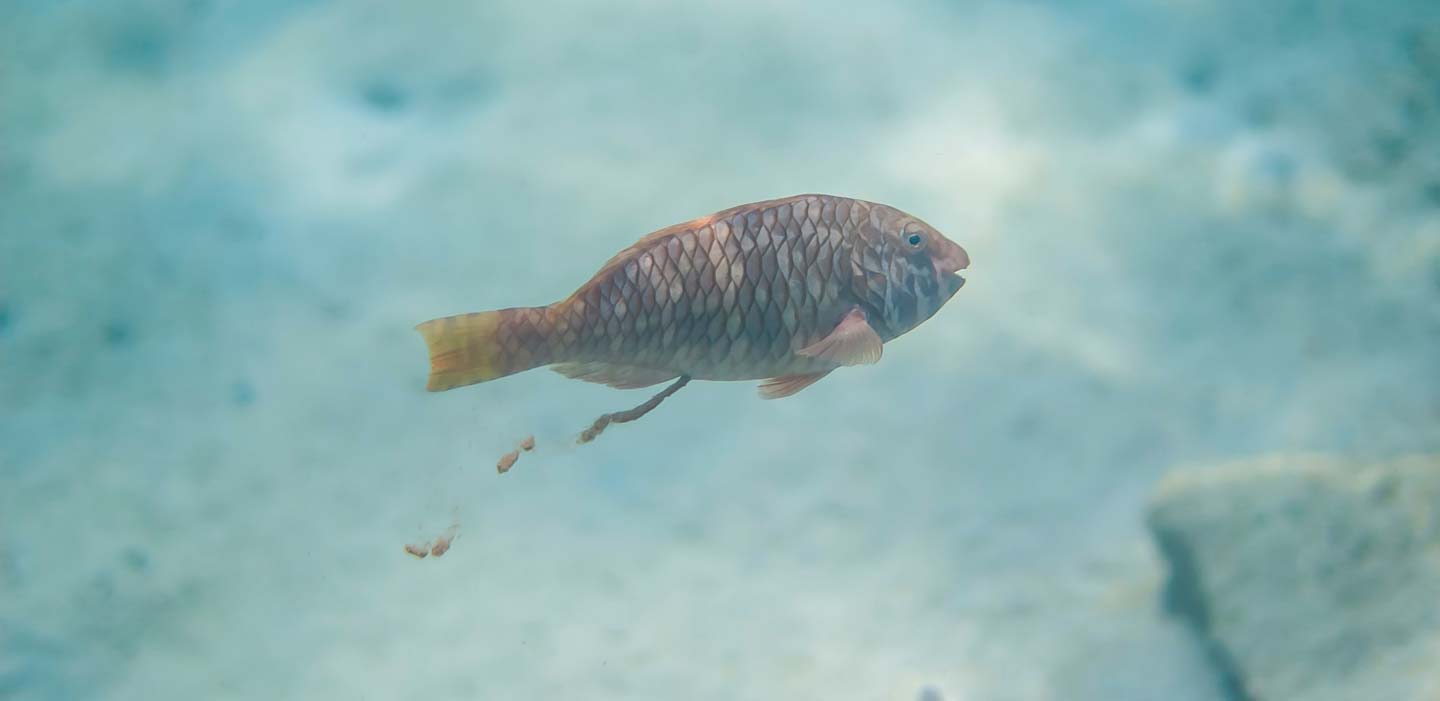
There are plenty of fish in the sea — but that doesn’t mean we should be consuming them. By 2048, seafood may be gone as a direct result of human consumption. "If the long-term trend continues, in 30 years there will be little or no seafood available for sustainable harvest". Unless you are eating these animals out of necessity, there is no reason to eat seafood. Sadly, if we continue down this path of consumption, it will have many devastating effects on people, the planet, and animals.
Keep reading to discover four main reasons to stop eating seafood. 
Fish Can Feel And Have Emotions
“Food choices are determined by many factors, but reason (even consciousness) is not generally high on the list,” Jonathan Safran Foer writes in book, Eating Animals.
It’s true — while humans have generally an overflowing amount of love for their pets, they seem to be able to blissfully (and ignorantly) separate how animals like fish can feel pain just as much as any purebred or mutt they’ve come to know and love.
Fish have feelings too. Given the vastness and obscureness of the ocean, fish have been the last frontier of exploration by scientists. But research shows that fish have a conscious awareness that allows them to experience pain, recognise individuals, and have memory, according to the book, What A Fish Knows: The Inner Lives Of Our Underwater Cousins.

Seafood Slavery is a Big Problem
Do you know who caught your seafood? If not, it may have been caught by someone who has been enslaved.
Sadly, seafood slavery is extremely prevalent, particularly in Southeast Asia. On some fishing boats, it is common for people to work for decades without receiving any pay while also being treated inhumanely all the while.
Men from Myanmar, Cambodia, and Laos are especially vulnerable, with many people sold to boats having no clue that they would be trapped and forced to fish. Inhumane treatment was not uncommon, and many enslaved fishermen were beaten, starved, and forced to work without any sleep.
The International Organization for Migration says that it is almost impossible to recognise what seafood has been caught with the implementation of slaves vs. fish that are caught by legitimate means. Some men, after being enslaved, received restitution after being freed, which sometimes only amounted to about $150 a month. Sadly, many of the men take the pathetic compensation just so that they can go home and see their families after years of slave-like conditions.
Fishing slavery has yet to be erradicted from Southeast Asian waters, particularly in Thailand. While new rules and regulations on the industry have been implemented, abuse still exists in the industry.
Thinking this doesn't affect you? Keep in mind in the U.S., roughly 90% of seafood that Americans eat is imported. China is their largest seafood partner, followed by Thailand. The percentage of imported seafood in your own country is probably a lot higher than you think.
 Seafood Has Devastating Effects on the Environment
Seafood Has Devastating Effects on the Environment
Trillions of fish are killed and processed by the fishing industry every year. In addition to hurting fish, it is also incredibly harmful to the environment. Farming shrimp, for example, is one of the direct causes of the destruction of over 80% of mangrove forests in certain parts of the world, including Thailand.
In addition, seafood is often caught by bottom trawling. This method of fishing involves dragging heavy nets across the sea floor to catch the maximum amount of fish and is extremely popular in commercial fishing. When dragging the nets, however, everything that gets in the way and that is swept up is known as bycatch (up to 10-40 percent of all fish are bycatch). Animals and sealife that is unwanted is thrown back into the ocean, and oftentimes, it is already dead — the damage is done.
The other major method of commercial fishing is known as long line fishing. Huge lines of nets are dragged through the ocean. Thousands of baited hooks are along the nets and can be up to 50-100 kilometres long. Whales, dolphins, sharks, turtles, sea lions, and other animals perish in these lines as a side effect of the fishing industry.
One person’s consumption in fish is the direct cause of the death of many more animals than just is what is served on their plate. Because of this, certain sea animals are on the brink of extinction, and the ocean is literally being destroyed because of seafood farming and consumption.
There Are Plenty of Vegan Seafood Items That are Delicious
It is possible to satisfy your meat-cravings and seafood loving friends thanks to the many advances in faux meat. Satisfy your out-dated taste buds with the help of many plant-based restaurants and food items serving up some pretty realistic seafood, including Vegan Finest Foods. Their sashimi no tuna, shrimpz, tasty codd, and kalamariz boast of both taste and texture that will fool even the most dedicated seafood lover.
Other amazing businesses who are making some incredibly tasty and realistic seafood finds include Future Sushi in Melbourne (serving up insanely realistic looking ‘sashimi’) and Beyond Sushi in New York City. If you’re looking to pick up something you can make at home, check out the amazing seafood alternatives below, as well!
- Golden Fishless Filets by Gardein
- Fish-Free Tuna by Good Catch
- Vegan Fishless Fingers by Quorn
Plus, there are plenty of amazing recipes you can try out at home. Have you tried making vegan smoked salmon lox (made from carrots!)?
For more inspo on why you should go vegan and other cool, plant-based findings, be sure to check out Plant Faced Clothing’s brand-spankin’ new Journal. This is the best blog out there for all things plant-based — check it out today!
Be sure to check out some of our newest articles on the blog:


















